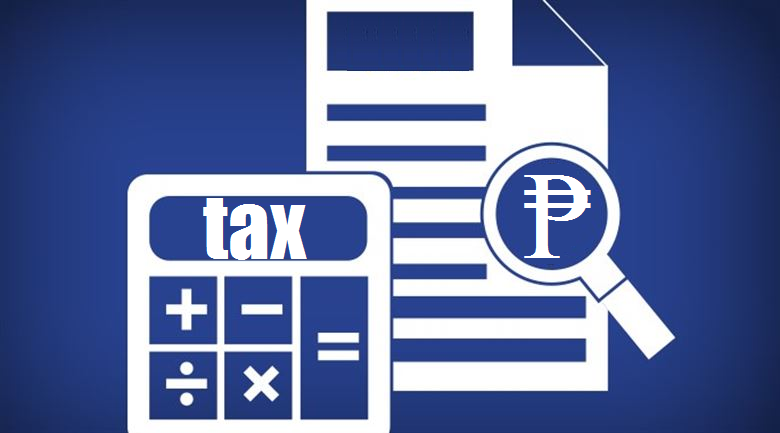CASE DIGEST: Medicard vs. CIR (G.R. No. 222743; April 5, 2017)
 CASE DIGEST: MEDICARD PHILIPPINES, INC., Petitioner, vs. COMMISSIONER OF INTERNAL REVENUE, Respondent. (G.R. No. 222743; April 5, 2017)
CASE DIGEST: MEDICARD PHILIPPINES, INC., Petitioner, vs. COMMISSIONER OF INTERNAL REVENUE, Respondent. (G.R. No. 222743; April 5, 2017)MEDICARD was ordered by the CTA to pay CIR VAT deficiency at 220 million pesos plus 20% interest per annum from January 25, 2007.
Finding some discrepancies between MEDICARD's Income Tax Returns (ITR) and VAT Returns, the CIR informed MEDICARD and issued a Letter Notice (LN). A PAN was issued against MEDICARD for deficiency VAT. A FAN was received by MEDICARD on January 4, 2008 for alleged deficiency VAT for taxable year 2006 in the total amount of Pl 96,614,476.69,10 inclusive of penalties.
More importantly, MEDICARD raised the issue of lack of Letter of Authority (LOA) on the part of the revenue officer who conducted the examination. The CIR, on the other hand, posits that the LN is enough compliance with the LOA requirement, arguing that the use of computers to detect discrepancies dispenses with the requirement of LOA.
Furthermore, the CIR argued that the amounts earmarked and eventually paid by MEDICARD to medical service providers form part of gross receipts for VAT purposes. The CTA EB sided with the CIR.
ISSUE: Can the LN replace the LOA requirement? What is the status of the assessment?
No, the LN cannot replace the LOA requirement.
An LOA is the authority given to the appropriate revenue officer assigned to perform assessment functions. In the absence of such an authority, the assessment or examination is a nullity.
The LN cannot replace the LOA required under the law even if the same was issued by the CIR himself. Under RR No. 12-2002, LN is issued to a person found to have underreported sales/receipts per data generated under the RELIEF system. Upon receipt of the LN, a taxpayer may avail of the BIR's Voluntary Assessment and Abatement Program. If a taxpayer fails or refuses to avail of the said program, the BIR may avail of administrative and criminal remedies, particularly closure, criminal action, or audit and investigation. Since the law specifically requires an LOA and RMO No. 32-2005 requires the conversion of the previously issued LN to an LOA, the absence thereof cannot be simply swept under the rug, as the CIR would have it. In fact, Revenue Memorandum Circular No. 40-2003 considers an LN as a notice of audit or investigation only for the purpose of disqualifying the taxpayer from amending his returns.
The revenue officers not having authority to examine MEDICARD in the first place, the assessment issued by the CIR is inescapably void.
ISSUE: Can the LOA requirement be dispensed with, considering that MEDICARD's books have not been physically examined?
No, the LOA requirement cannot be dispensed with even if MEDICARD's books have not been physically examined.
Section 6 of the NIRC requires an authority from the CIR or from his duly authorized representatives before an examination "of a taxpayer" may be made. The requirement of authorization is therefore not dependent on whether the taxpayer may be required to physically open his books and financial records but only on whether a taxpayer is being subject to examination.
An LOA cannot be dispensed with just because none of the financial books or records being physically kept by MEDICARD was examined.
ISSUE: Are the amounts earmarked and eventually paid by MEDICARD to the medical service providers part of gross receipts for VAT purposes?
No, the amounts earmarked and eventually paid by MEDICARD to its medical service providers do not form part of gross receipts for VAT purposes.
The CTA EB overlooked that the definition of gross receipts under. RR No. 16-2005 merely presumed that the amount received by an HMO as membership fee is the HMO's compensation for their services. As a mere presumption, an HMO is, thus, allowed to establish that a portion of the amount it received as membership fee does NOT actually compensate it but some other person, which in this case are the medical service providers themselves. It is a well-settled principle of legal hermeneutics that words of a statute will be interpreted in their natural, plain and ordinary acceptation and signification, unless it is evident that the legislature intended a technical or special legal meaning to those words. The Court cannot read the word "presumed" in any other way.
The CTA's ruling and CIR's Comment have not pointed to any portion of Section 108 of the NIRC that would extend the definition of gross receipts even to amounts that do not only pertain to the services to be performed by another person, other than the taxpayer, but even to amounts that were indisputably utilized not by MEDICARD itself but by the medical service providers.
ISSUE: Is it not that MEDICARD's act of earmarking constitutes an exercise of ownership, thereby proving that the amounts earmarked form part of gross receipts for VAT purposes?
No, such act of earmarking does not constitute an exercise of ownership.
MEDICARD's act of earmarking or allocating 80% of the amount it received as membership fee at the time of payment that weakens the ownership imputed to it. By earmarking or allocating 80% of the amount, MEDICARD unequivocally recognizes that its possession of the funds is not in the concept of owner but as a mere administrator of the same. For this reason, at most, MEDICARD's right in relation to these amounts is a mere inchoate owner which would ripen into actual ownership if, and only if, there is underutilization of the membership fees at the end of the fiscal year. Prior to that, MEDICARD is bound to pay from the amounts it had allocated as an administrator once its members avail of the medical services of MEDICARD's healthcare providers.



